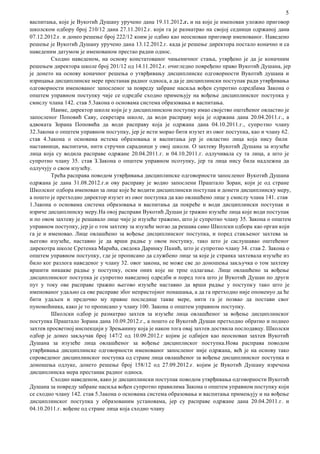The Rise Of Secondhand: A Golden Age?

Table of Contents
Environmental Benefits of Secondhand Shopping
The environmental advantages of choosing secondhand are undeniable. By extending the lifespan of products and reducing our reliance on new manufacturing, we significantly lessen our impact on the planet.
Reduced Waste and Landfill Burden
The sheer volume of waste generated by our consumer culture is staggering. Secondhand shopping offers a powerful solution to this problem.
- Reduced textile waste: The fashion industry is a major contributor to landfill waste. Buying secondhand clothing dramatically reduces the demand for new garments, diverting tons of textiles from landfills.
- Furniture and home goods: Secondhand furniture, appliances, and home décor extend the life of these items, reducing the need for new production and associated waste.
- Electronics recycling: The responsible recycling of electronics is crucial. Buying used electronics reduces the demand for new products, minimizing the mining of precious metals and the creation of electronic waste.
The carbon footprint of manufacturing new products is vastly larger than that of simply reusing existing ones. Choosing sustainable secondhand options is a direct contribution to a healthier planet. Keywords like "sustainable secondhand," "eco-friendly secondhand," and "reducing waste secondhand" reflect the growing awareness of this crucial connection.
Lower Carbon Footprint
Manufacturing new goods is energy-intensive and contributes significantly to greenhouse gas emissions. The production of clothing, for instance, is responsible for a substantial portion of global carbon emissions.
- Significant reduction in emissions: Studies show that buying secondhand significantly reduces the carbon emissions associated with manufacturing new products.
- Reduced transportation impact: While shipping secondhand items still has an environmental impact, it's generally lower than the emissions associated with producing and transporting entirely new goods.
- Conservation of resources: Secondhand shopping conserves natural resources like water, energy, and raw materials that would otherwise be consumed in new production.
Choosing green secondhand options actively contributes to lowering your carbon footprint, making it a crucial element of sustainable living. Terms like "green secondhand," "low-carbon secondhand," and "sustainable shopping secondhand" highlight the environmental responsibility of this consumer choice.
Economic Advantages of the Secondhand Market
The secondhand market offers compelling economic benefits for both buyers and sellers, fostering accessibility and supporting local communities.
Affordability and Accessibility
Secondhand shopping makes desirable goods accessible to a broader range of consumers.
- Significant cost savings: Secondhand items are often significantly cheaper than their new counterparts, making them a budget-friendly option.
- Access to premium goods: Secondhand markets provide access to high-quality, often luxury items that might be unattainable at their new retail prices.
- Financial benefits for sellers: Selling pre-owned items provides individuals with an opportunity to generate income and declutter their homes.
Keywords like "affordable secondhand," "budget-friendly secondhand," and "cheap secondhand" reflect the economic appeal of this market.
Supporting Local Communities and Businesses
The secondhand market isn't just about individual transactions; it supports local economies and businesses.
- Local secondhand shops: These businesses provide employment opportunities and contribute to the vibrancy of local communities.
- Online marketplaces: Platforms like eBay and Etsy connect buyers and sellers across geographical boundaries, but often support smaller businesses and individual sellers.
- Community-driven initiatives: Many communities have organized secondhand initiatives, fostering a sense of community and resourcefulness.
The phrases "local secondhand," "community secondhand," and "supporting local secondhand" underline the important social and economic contributions of this sector.
Challenges and Considerations of the Secondhand Market
While the advantages are clear, it's crucial to acknowledge the challenges inherent in the secondhand market.
Quality Control and Authentication
Concerns about the quality and authenticity of secondhand items are valid.
- Thorough inspection: Careful inspection is essential before purchasing any secondhand item to identify potential problems.
- Verification of authenticity: When buying luxury goods or collectibles, verifying authenticity is crucial. Checking for hallmarks, serial numbers, and provenance is vital.
- Understanding seller reputation: Choosing reputable sellers with positive feedback and reviews helps mitigate risks.
Keywords like "authentic secondhand," "quality secondhand," and "reliable secondhand" reflect the need for informed consumer choices in this market.
The Role of Technology and Online Marketplaces
Online marketplaces have revolutionized the secondhand market, but they also present challenges.
- Increased access: Online platforms expand access to a vast array of secondhand goods, connecting buyers and sellers worldwide.
- Fraud and scams: The ease of online transactions also introduces the risk of fraud and scams. Buyers need to be vigilant and exercise caution.
- Logistics and shipping: The complexities of shipping secondhand items, including packaging and insurance, can present challenges.
Terms such as "online secondhand," "digital secondhand," and "e-commerce secondhand" capture the technological transformation of this sector.
The Future of Secondhand: Trends and Predictions
The future of secondhand looks bright, with strong projections for continued growth and innovation.
Growing Consumer Demand
The demand for secondhand goods is expected to continue its upward trajectory.
- Sustainability-driven consumerism: Growing environmental awareness is fueling demand for sustainable consumption choices, including secondhand shopping.
- Economic uncertainty: Economic pressures are driving more people to seek affordable alternatives, including secondhand options.
- Unique and vintage finds: The appeal of finding unique and vintage items remains a strong driver for secondhand shopping.
Keywords such as "future of secondhand," "secondhand trends," and "growth of secondhand" reflect the optimistic projections for this market.
The Evolution of Secondhand Retail
Secondhand businesses are adapting and innovating to meet evolving consumer demands.
- Curated secondhand shops: Many shops now offer carefully curated selections, focusing on quality and aesthetics.
- Online consignment platforms: These platforms provide a streamlined process for selling and buying secondhand items.
- Resale platforms with authentication services: Some platforms offer authentication services to build trust and reduce fraud.
The phrases "modern secondhand," "innovative secondhand," and "new secondhand" highlight the dynamism and innovation within this sector.
Conclusion
The rise of secondhand represents a powerful shift in consumer behavior, driven by both environmental consciousness and economic pragmatism. While challenges remain, the benefits – from reducing waste and lowering carbon footprints to fostering local economies and offering affordable access to desirable goods – are undeniable. The secondhand market is not just a trend; it's a sustainable and economically savvy approach to consumption that's shaping the future. Join the growing movement towards sustainable consumption by exploring the world of secondhand. Discover the unique treasures and economic advantages available in the secondhand market today!

Featured Posts
-
 Venezia Y Atalanta Resultado Final 0 0 Sin Goles
May 13, 2025
Venezia Y Atalanta Resultado Final 0 0 Sin Goles
May 13, 2025 -
 Beyonces Five Time Script Rewrite Request A Hollywood Producers Tale
May 13, 2025
Beyonces Five Time Script Rewrite Request A Hollywood Producers Tale
May 13, 2025 -
 Uni A Roma Srbi E Zakhtev Za Prestanak Targetiranja Od Strane Marinike Tepi
May 13, 2025
Uni A Roma Srbi E Zakhtev Za Prestanak Targetiranja Od Strane Marinike Tepi
May 13, 2025 -
 Didcot Dog Walk Supports Mental Health Awareness Week
May 13, 2025
Didcot Dog Walk Supports Mental Health Awareness Week
May 13, 2025 -
 Tasman Council Urged To Keep Key Road Open A Realistic Approach
May 13, 2025
Tasman Council Urged To Keep Key Road Open A Realistic Approach
May 13, 2025
